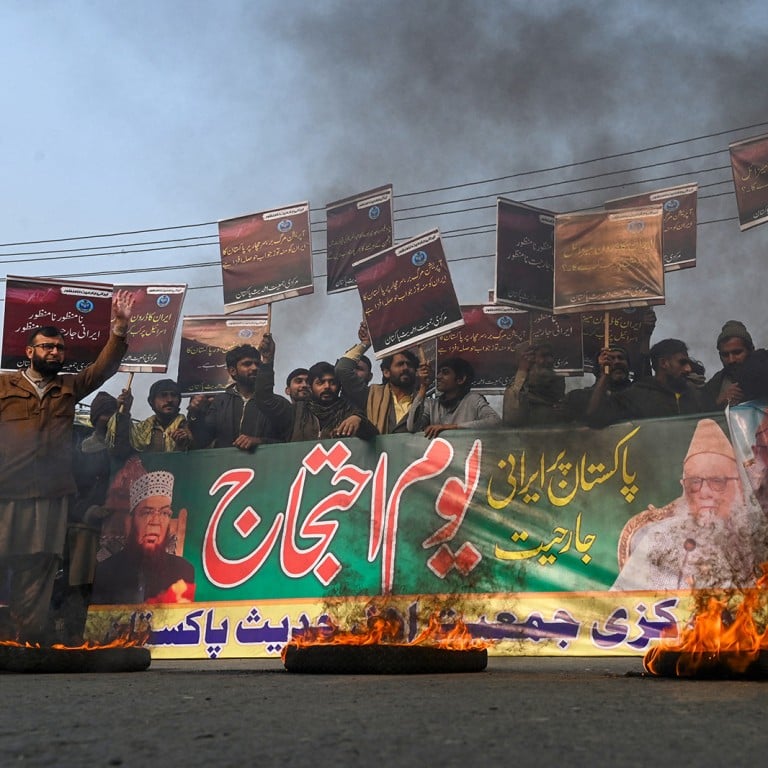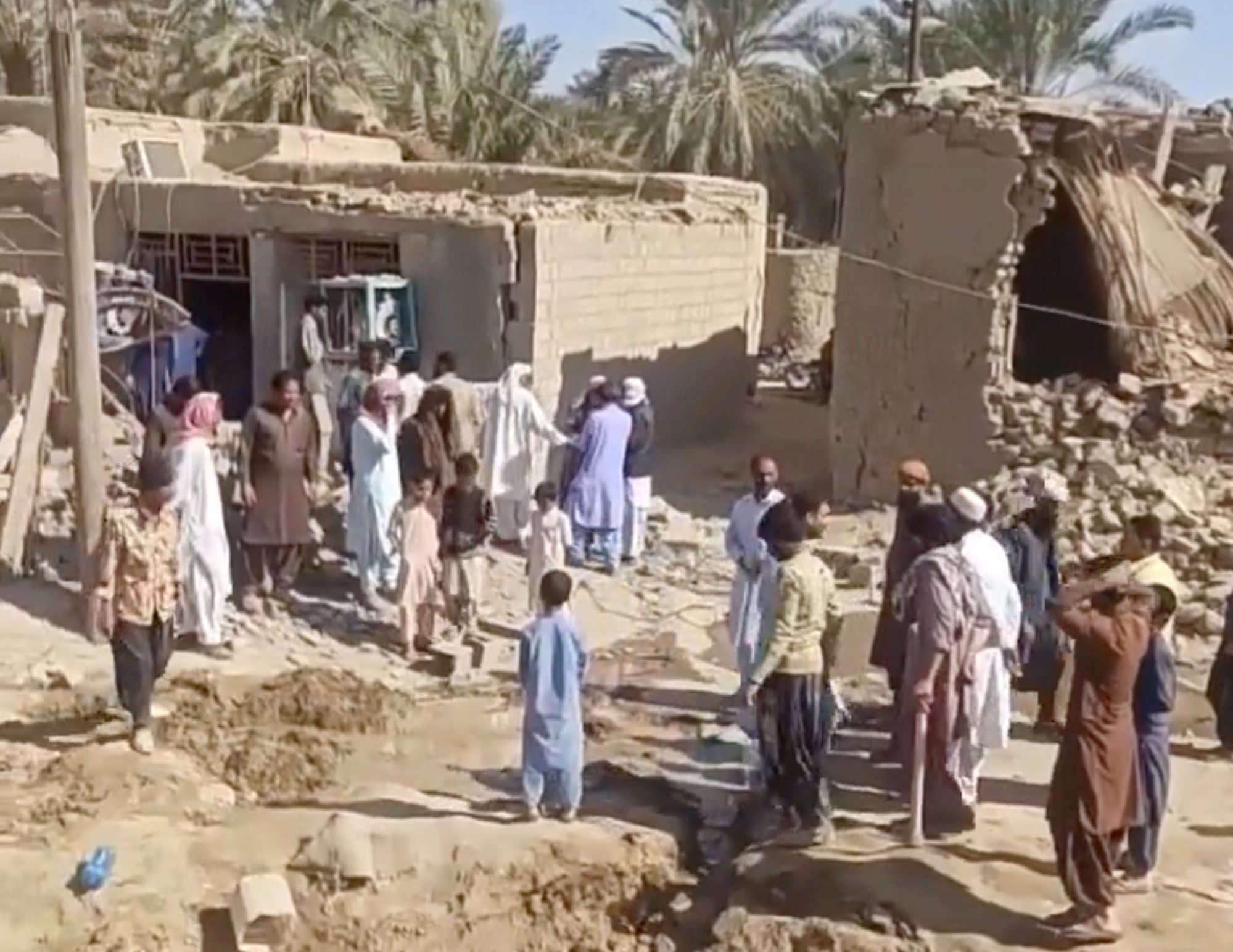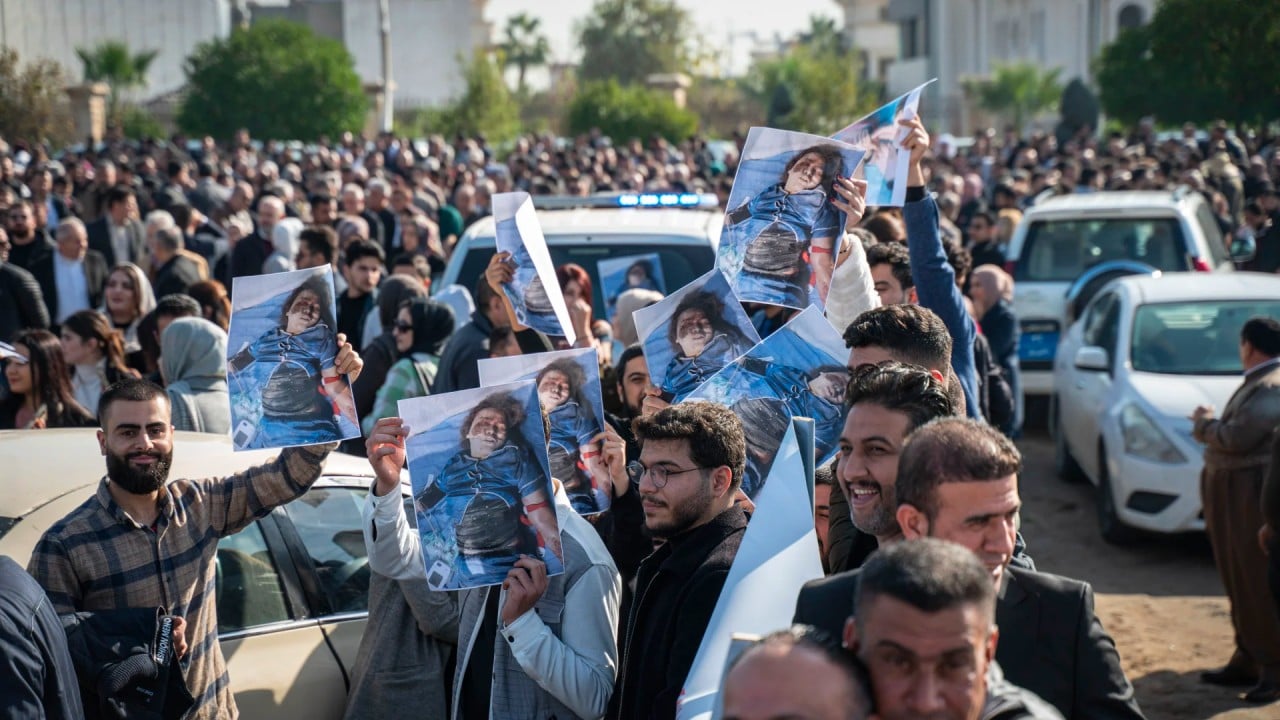
Iran and Pakistan set to meet on Monday to repair ties after tit-for-tat strikes, decline China’s mediation offer
- The two countries have a ‘joint interest in combating the menace’ of Baloch militants waging war against both sides, a Pakistani official says
- Iran’s decision to quickly cool tensions with Pakistan is an acknowledgement that its initial military action in Pakistani territory is ‘an own goal’
The two countries have a “joint interest in combating the menace” of the ethnic Baloch militant groups waging insurgencies against Pakistani and Iranian security forces, a senior Pakistani official told This Week In Asia on condition of anonymity, citing diplomatic sensitivities.
The official said the Iranian foreign minister Hossein Amir-Abdollahian would discuss with his Pakistani counterpart Jalil Abbas Jilani on “how best to combat” the threat posed by ethnic Baloch insurgents from their hideouts in the remote region bordering both countries, which was also a haven for human smugglers and narcotics traffickers.
Iran’s attacks in Pakistan, Iraq to avoid ‘losing face’ risk irking China
Seyed Mohammed Marandi, a noted Iranian academic who has advised the government on nuclear talks with the West, agreed that border security would top the bill when Amir-Abdollahian visits Islamabad for talks on Monday.
“I’m sure the border is a top priority” for Tehran because “the Israelis are trying hard to strike back at Iran” after its non-state militia allies in Iraq, Lebanon, Syria and Yemen targeted Israel in response to the Jewish-majority state’s ongoing military campaign in Gaza, he said.
Marandi did not expect Iran and Pakistan to accept China’s offer to mediate between its two allies because “there is no need”, an assessment shared by the Pakistani official.
“The relationship is solid. But the border region needs money and infrastructure,” Marandi said.
Chinese vice foreign ministers Sun Weidong and Ma Zhaoxu respectively “had an exchange of views” on the “international and regional situation” with top Pakistani and Iranian diplomats on Saturday and Sunday, according to official statements issued by Beijing, which did not specifically mention the exchange of air strikes.
The Islamabad-based official said the onus during Amir-Abdollahian’s visit would be on him to show how Tehran would improve its border security, because “Pakistan has already constructed a fence along about 85 per cent” of their undisputed 904km border.
He described Iran’s military action in Pakistani territory as “an own goal” because Tehran had targeted its “only peaceful” major border.
Balochistan women hailed for their sacrifices in Pakistan art exhibition
Israel is the largest supplier of military hardware including drones to Azerbaijan, which in return supplies crude oil extracted from beneath the Caspian Sea, the world’s largest lake.
Defusing tensions
The Islamabad-based official said Pakistan’s two-and-a-half hour retaliatory air strike, during which it completely jammed Iran’s eastern air defences, had “destroyed the Iranian aura” of invincibility within its neighbourhood.
Pakistan’s national security council last Friday decided to de-escalate tensions, having initially recalling its ambassador and asking Iran’s envoy not to return from Tehran.
It hoped that Pakistan and Iran would “mutually be able to overcome minor irritants” through diplomatic dialogue but warned Tehran it would again respond in kind to any further cross-border strikes.

Iran’s foreign ministry replied by issuing a statement shortly afterwards on the same day which said it “adheres to the policy of good neighbourliness and brotherhood between the two nations and the two governments”.
This set the stage for a telephone conversation hours later between the Iranian and Pakistani foreign ministers, during which they agreed to restore full diplomatic relations and reinstate their ambassadors by Friday.
Iran explained in the statement and to Pakistan in diplomatic conversations that it was forced to act unilaterally to prevent an imminent cross-border terrorist attack by Jaish al-Adl.
Tehran emphasised that it had only attacked Iranian nationals in Panjgur, in the west Balochistan province of Pakistan, while acknowledging that Pakistan had hit its rebellious citizens in Iranian territory. In a bid to ease bilateral tensions, the Iranians promised to launch an investigation into how the insurgents had established hideouts on Iranian soil.
‘Why bother to vote’: dissecting Pakistan’s polls along the Karakoram Highway
“I think Pakistani officials soon realised that this [Panjgur target] was a real military base and that a large number of Iranian-born terrorists were gathered for an operation,” said Marandi, who is a professor of English literature and Orientalism at the University of Tehran.
“They recognised that it was a very difficult decision for Iran” because it has recently witnessed several terror attacks, two of which were “devastating”, he said.
At least 90 people were killed in a twin suicide bombing attack in the southern Iranian city of Kerman on January 3, where people had gathered to commemorate the United States’ assassination of top Islamic Revolutionary Guards Corps commander Qassem Soleimani four years ago.
The attack was claimed by Islamic State (Isis) and Iranian investigations identified one of the two suicide bombers as a Tajikistan national based in Afghanistan. Not wanting to antagonise the Taliban regime by bombing Afghan territory, Iran responded by launching ballistic missiles at Isis targets in Syria.
A further 15 Iranians were killed by Jaish al-Adl militants in December during an attack on a police station in the southeast province of Sistan and Baluchistan, which borders Pakistan’s Balochistan province.

Following the police station attack, Iranian officials had warned Islamabad of cross-border strikes in the event of further attacks, but these were dismissed by Pakistan as political rhetoric for domestic consumption.
Iran’s air strikes came “as a rude shock to Pakistan”, which had not thought that Iran “could even contemplate an action of this kind”, said Maleeha Lodhi, a former ambassador of Pakistan to Britain, the United States, and the United Nations.
Pakistan’s retaliatory strike was intended to “send a message, loud and clear, to deter and dissuade Iran from trying anything similar to that in the future”, she said.
“The fact that Iran very quickly stepped back after Pakistan’s retaliatory strike may have reflected Iran’s acknowledgement that it had made a mistake by taking the [initial] action [to attack],” Lodhi said.


